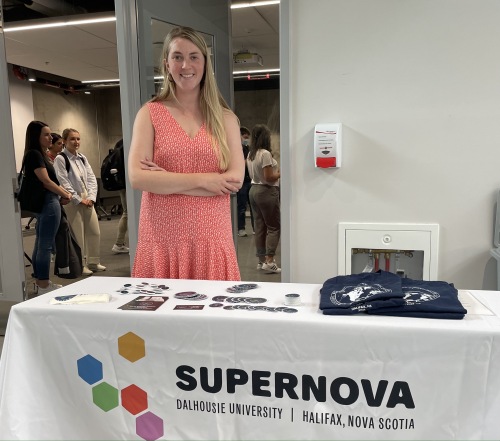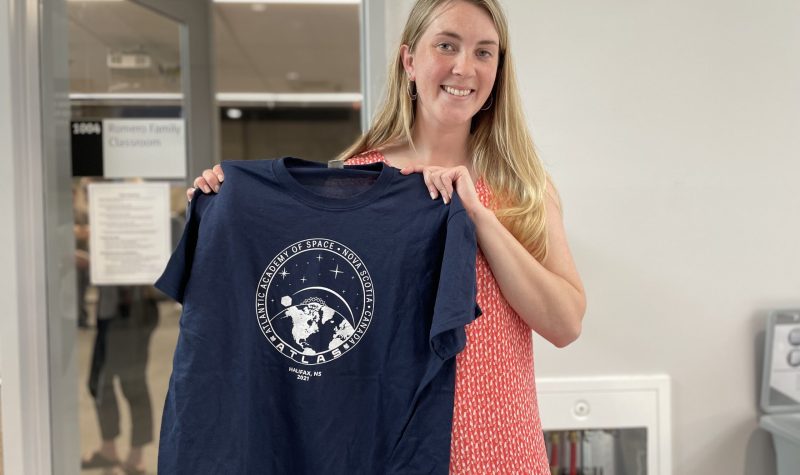The ATLAS Summer Academy is a new, first-of-its-kind space initiative created to support high school students that are interested in pursuing a space-related career.
Alexandra Fenton, executive director of SuperNOVA, said the program will take place at Dalhousie University this summer under two cohorts—one that will take place in the last two weeks of July, and the other in the first two weeks of August.
“This is the first program of its kind in Nova Scotia, perhaps in Canada, because we're using real CubeSat hardware. Typically, high school programs around space tend to be more analog versions: so they're not as realistic or as intense. This is a very high-quality academic program that features real scientific expertise, and mentorship from the industry,” said Fenton.
The ATLAS Summer Academy was created through a collaboration by SuperNOVA at Dalhousie University, GALAXIA Mission Systems and the Dalhousie Space Systems Lab. It is an intensive, two-week satellite design program for Grade 10-12 students across Atlantic Canada. Successful applicants will gain engineering, AI, and tech skills under the guidance of professionals from the space industry, and will put these skills to use in Dalhousie’s engineering facilities.
“We're bringing 60 students from all across Atlantic Canada, and they're going to learn how to design and build a CubeSat using real space grade hardware,” said Fenton.
A CubeSat is a square-shaped miniature satellite roughly the size of a Rubik’s cube that weighs about 1 kg.
The chosen high school students will work with Dalhousie University students and receive mentorship and guidance mostly from Dalhousie instructors, as well as staff from SuperNOVA and related collaborative organizations.

Fenton says 60 students from across Atlantic Canada will get the opportunity to learn how to design and build a CubeSat using real space-grade hardware. Photo by Sara Gouda.
Fenton, who has been with SuperNOVA since 2015, said the youth outreach organization does STEM programming more broadly and reaches about 15,000 kids a year; however, this new project is the first targeted to help younger generations.
“We're really excited to be able to bring this to the high school age group. It's an age group that we haven't worked a lot with at SuperNOVA," she said. "The space programming is new for us, but it's a burgeoning industry in Nova Scotia and we're really excited to help support the career pipeline towards that.”
ATLAS is a free program that includes travel expenses.
“To make the program free of charge for participants to attend, the space engineering program is supported by a number of large funding agencies and serves Promo Science, the Canadian Space Agency's Scale AI and some others. We've provided travel support and residence. Students are going to attend classes on campus every day for the two-week program.”
With a 50 per cent BIPOC youth target and gender parity, the intention of this program is to make space engineering learning fully accessible and welcoming to students across Atlantic Canada.
Applications have been open since February, and the program is seeking motivated students with a passion for STEM and an interest in the space industry.
“There will be jobs in the space industry in Nova Scotia in the future, and we want to keep our talent here. So we're working to get kids interested in technology and engineering surrounded in the space sector.”
More details are available on their website.
Listen to the full interview below:


